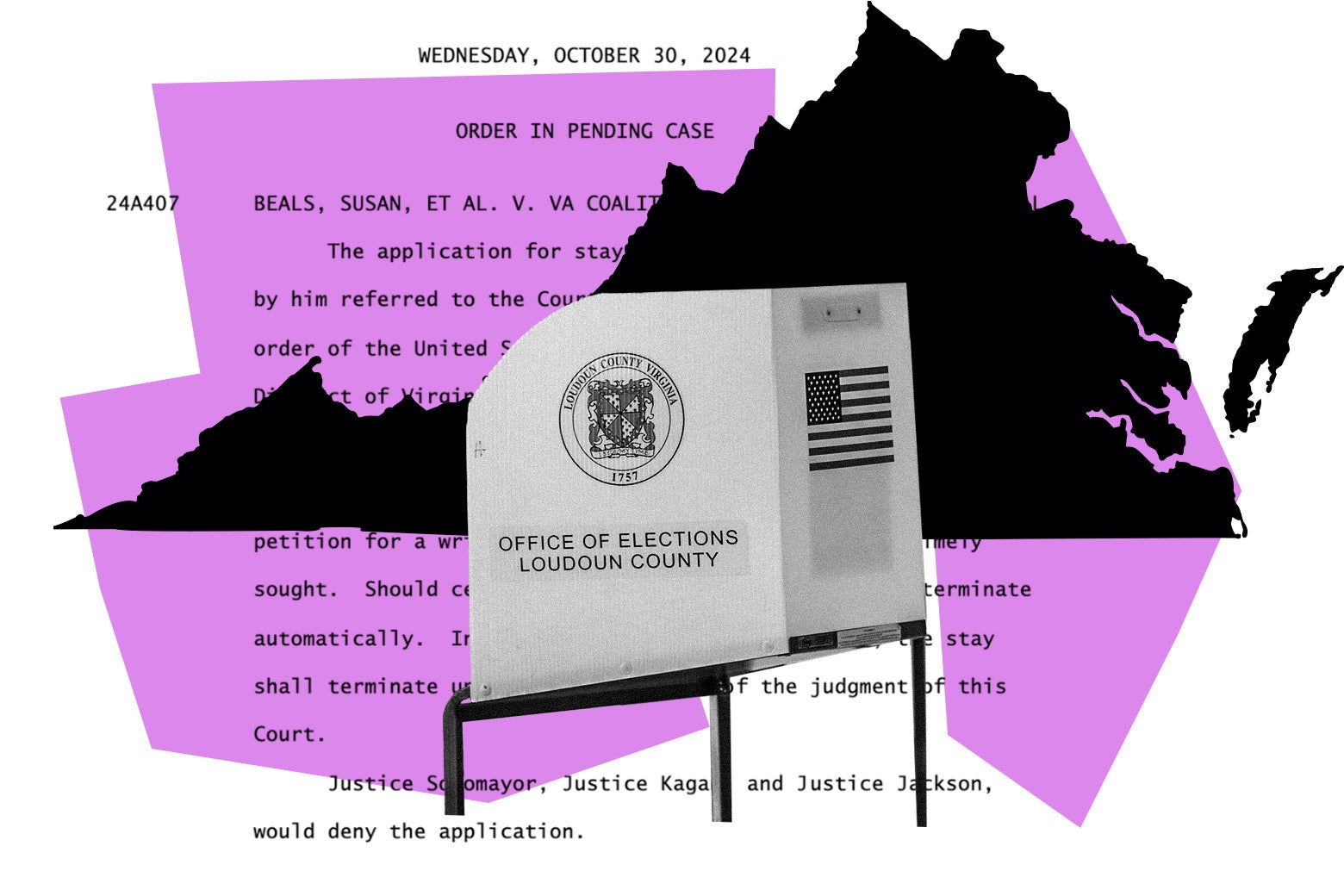Politics
Supreme Court Creates Major Loophole in Voting Rights Law

The Supreme Court has recently made a controversial decision that has opened a significant loophole in a crucial voting rights law, raising concerns about voting access across the country. On Wednesday, the court’s conservative majority ruled that over 1,600 individuals—including many U.S. citizens eligible to vote—could be removed from Virginia’s voter registration list just before the upcoming Election Day. This ruling effectively undermines a pivotal federal law aimed at preventing last-minute voter purges, which the court decided upon through its shadow docket, a method often criticized for lacking transparency.
All three liberal justices dissented, highlighting the severity of the ruling. Virginia Governor Glenn Youngkin and Attorney General Jason Miyares celebrated this decision as a significant win for their administration’s efforts to enhance the state’s power to cancel voter registrations at a critical moment. This action raises alarms as it appears to directly contravene federal regulations set forth in the National Voter Registration Act of 1993. This law specifically prohibits states from implementing programs that systematically remove ineligible voters from official lists within 90 days leading up to a federal election—a measure born out of historical abuses resulting in eligible voters mistakenly purged.
Youngkin’s administration issued an executive order mandating daily voter purges starting exactly 90 days before the upcoming election, despite his claims that only noncitizens would be affected. Reports have shown that his program has inadvertently targeted U.S. citizens, particularly those who mistakenly checked a box indicating noncitizenship on DMV forms, as well as individuals who became naturalized citizens. Furthermore, the state’s comparisons of voter registrations against an imperfect database maintained by the Department of Homeland Security have led to false purges, entrapping eligible voters.
This legal battle intensified when a federal court initially halted the purge, a ruling that was upheld by the U.S. Court of Appeals for the 4th Circuit. However, the Supreme Court’s intervention reversed that reprieve, enabling the purges to move forward without elaborating on its reasoning—a troubling direction for voting rights advocates. The conservative majority likely upheld Virginia’s argument that its approach to identifying ineligible voters was individualized, thereby sidestepping the definition of a systematic purge outlined by federal law.
If the Supreme Court continues down this path, it could set a precedent allowing states to bypass the stringent protections against voter roll purges that Congress painstakingly put in place. This ruling not only raises questions about the future enforcement of the National Voter Registration Act, but it also signals to other states that similar disregard for voter protection laws could be permissible.
The implications of this decision extend beyond the immediate electoral landscape. It jeopardizes the integrity of voter registration lists nationwide, signaling to states that they may have the green light for abrupt purging actions before elections. The ruling, seen by many as a dangerous erosion of voting rights, illustrates a critical moment where the safeguarding of the right to vote for all citizens is on the line. As this case unfolds, the foundational principles of electoral participation are at risk, potentially altering the framework of future elections across the United States.
